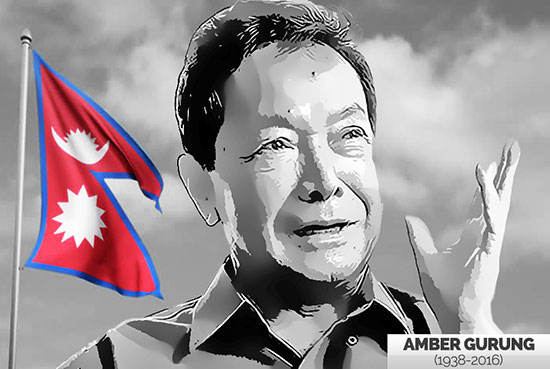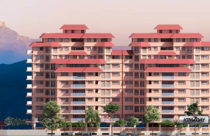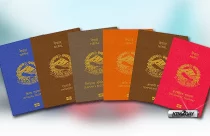National Anthem composer Amber Gurung dies at 79


Nepal’s national anthem composer and father of modern Nepali music Amber Gurung passed away in the wee hours of Tuesday. He was 79.
The Grande International Hospital, where Gurung was being treated, announced that the veteran lyricist, composer and singer breathed his last at 2:37 this morning.
According to the hospital, he was admitted for treatment of the upper gastrointestinal bleeding. He was kept on the ventilator at the Intensive Care Unit of the hospital since early Friday morning.
Gurung, who underwent treatment in Gurgaon-based Medanta Hospital for tumour on his food pipe some months ago, was rushed to the hospital after obstruction in the food pipe last week.
He was suffering from hypertension, diabetes and Parkinson’s disease since long.
Earlier on Friday, fans had gathered at the hospital premises and held a prayer wishing for his speedy recovery. He had returned home in the last week of March from India.
Amber Gurung was born on February 26, 1938 in Darjeeling of India.
Though the Gurung family was originally from Gorkha, he had spent most of his childhood in Darjeeling and later moved to Kathmandu in 1969. He was married to Bina Gurung.
He was a self-taught musician who learned both western and eastern classical music entirely on his own.
In the 1950s, Gurung established a music institute – The Art Academy of Music – in Darjeeling, where famous musicians and singers like Aruna Lama, Sharan Pradhan, Gopal Yonzon and Ranjit Gajmer among others learned under his guidance.
His first recorded song was ‘Nau Lakha Tara’ written by Agam Singh Giri in 1960.
Some of the popular songs by Gurung are Ukali Chadda, Jungi Nishan Hamro, Phoollaai Sodhein, Jindagiko Ke Kura and Sabai Yaad Aye.
He was appointed the founding Chancellor of Nepal Academy of Music and Drama in 2010.
Gurung is survived by his wife, three sons (Kishor, Raju and Sharad) and one daughter (Alka).
Major achievements:
• Composer of Nepal’s national anthem (2007)
• Invited by Nepal’s the then King Mahendra to return to Nepal to and chair the music department of Nepal Academy (1968)
• Renowned as the father of modern Nepali music
• Author and recording artist of more than 1000 songs (1961–2006)
• Composed/conducted the first Nepali chorales (1988, 1997)
• Composed/conducted the first Nepali operas, “Kunjini” (1963), “Muna Madan” (1979) and “Malati Mangale” (1986)
• Composed/conducted the first Nepali cantatas, “Smriti” (“Reminiscence,” 1964) and “Brave Gorkhas” (1972)
• Honoured with more than 25 life-time awards and felicitations
Awards:
• Uttam Shanti Shahitya Puraskar (2007)
• Kantipur FM Lifetime Achievement Award (2006)
• Hits FM Lifetime Achievement Award (2001)
• Madhurima Phulkumar Mahato Puraskar, Kathmandu (2000)
• Tuborg Outstanding Award (1999)
• Image award, Image TV, Kathmandu (1999)
• Jagadamba Shree, Kathmandu (1998)
• Bhupal Man Singh, Kathmandu (1998)
• Sha-Shanka, Jhapa (1996)
• Giri Puraskar, Darjeeling, India (1994)
• Golden Flute Award (CEDOS), Sikkim, India (1993)
• Indra Rajya Laxmi Pragya Puraskar, Kathmandu (1987)
• Chinalata Puraskar, Kathmandu (1983)
• Gorkha Dakshin Bahu, Kathmandu (1971)
• Gold Medal Radio Nepal, Kathmandu (1970)















